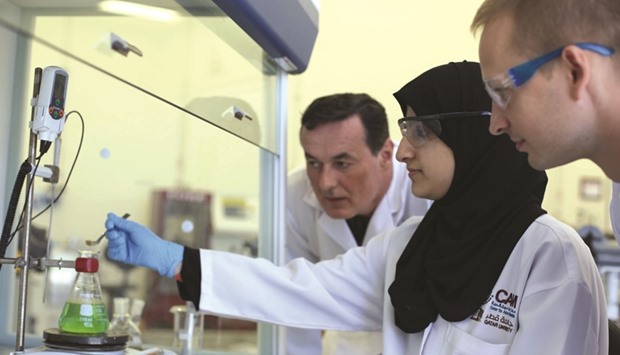Qatar University Centre for Advanced Materials (QU-CAM) is currently undertaking a research project on utilising palm waste to produce value-added products.
Titled “Renewable palm waste: More valuable than people think”, the research project is led by QU - Qatar Petrochemical Company polymer chair Prof Igor Krupa, and includes postdoctoral researcher Dr Patrik Soboliciak and research assistant Aisha Tanvir.
“Qatar is home to more than 600,000 palm trees. Given that the large amount of palm waste goes to waste and usually gets incinerated, harming the environment, CAM is focusing on extracting nanocellulose from it and use in a variety of applications, including reinforcement of polymers, water purification and paper manufacture,” director Prof Mariam al-Maadeed said.
Nanocellulose extracted from date palm waste exhibits mechanical properties akin to Kevlar, a lightweight material used to manufacture high-strength products.
Prof Krupa explained that similar mechanical properties and being an environment-friendly material makes nanocellulose a superior alternative to Kevlar and other fossil fuel-based materials.
Dr Soboliciak said cellulose can be extracted from palm waste by employing chemical or mechanical processes. These cellulose nanofibres have the ability to replace common inorganic fibres for material reinforcement in the medical, cosmetic and pharmaceutical industry.
“Moreover, the transparent nature of cellulose nanocrystals also makes them promising candidates for use in protective eyewear, windows or displays.”
“Nanocellulose from date palm waste has strong potential as a sustainable green reinforcement material,” Prof al-Maadeed said, adding that the research activity embodies QU’s continued commitment to actively tackle local challenges and research solutions for real-world problems.

Dr Soboliciak, Tanvir and Prof Krupa during a lab session.
